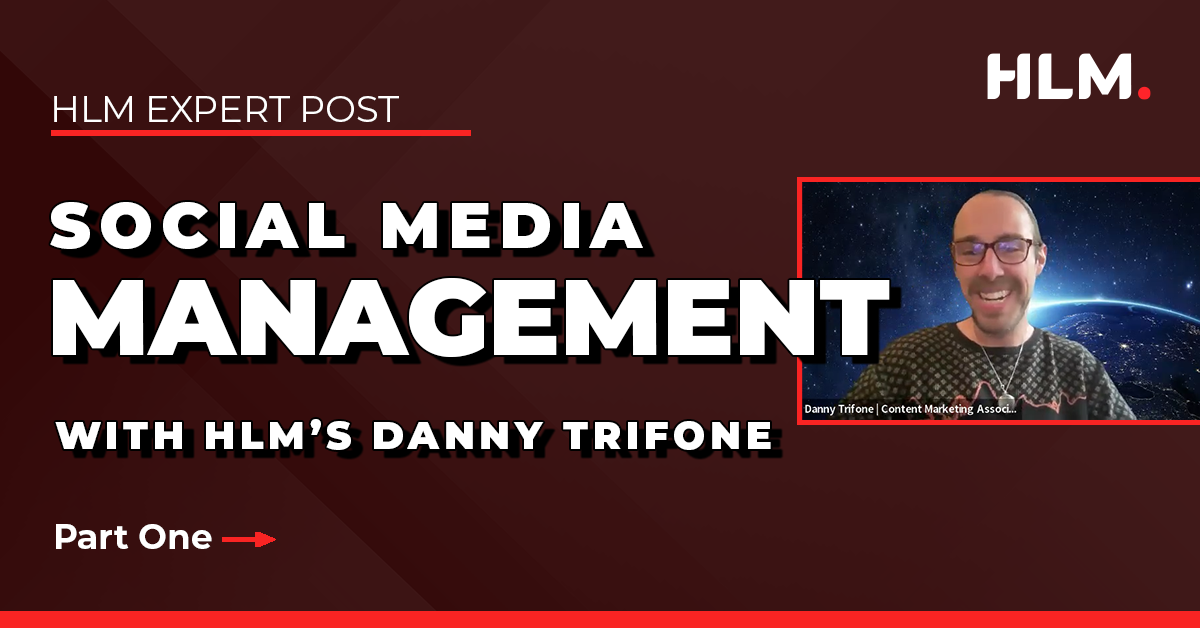4 min read
Quality vs Quantity: Keyword Amount Matters Less Than You Think
![]() By Logan Carney
Apr 9, 2024 5:20:06 PM
By Logan Carney
Apr 9, 2024 5:20:06 PM

Before my time at HLM, I worked briefly as a digital marketing specialist at a company that still believed in the keyword-stuffing era of the internet, where written content of all kinds consisted of 90% keywords, to the point where much content was unreadable for the regular website visitor.
This search engine optimization "tactic" was popular when the internet was in its infancy, as Google's algorithm wasn't yet sophisticated enough to determine when a website was spamming keywords simply as an attempt to increase website traffic.
I knew I had to help my previous employer adapt to the modern digital age. Sure enough, when we reduced the instances of keywords across the copy, the rankings, clicks, and impressions increased.
Unfortunately, the idea that the amount of keywords is vital and that the indiscriminate use of keywords leads to more website traffic and increases in SEO rankings is still somewhat widespread.
Sure, that may have been the case 20-30 years ago, but we’re in the AI era. The world is smarter, computers are more competent, and Google algorithms are now intelligent enough to thoroughly read a website and determine how helpful content is to a reader.
You’re Not Really Writing for the Algorithm
There’s a school of thought among some marketers that you need to write solely for Google's algorithm, instead of understanding what Google’s algorithm is trying to accomplish. You need to understand Google to write for Google.
View Google as a business - not a website, search engine, or algorithm.
Now ask yourself, "How does Google make money?"
Google doesn’t get a dollar because you searched “When did Taylor Swift and Travis Kelce start dating?” They earn money through advertising, more akin to a giant billboard you’ll see on the highway. The following is directly from Google:
- https://about.google/how-our-business-works
Google makes the vast majority of their money from advertisements, so what is their product?
YOU Are Google’s Product
Google owns 92% of the Search Engine Market. They sell exposure and attention to advertisers. They facilitate 8.5 billion searches daily, and they have a vested interest in providing an experience that makes you want to keep performing searches.
What does this have to do with keywords?
The more often a Google user performs a search and ends up on a website that is at best unhelpful, and at worst, unreadable due to that website's adherence to keyword stuffing, the more likely it is that Google will lose a user to a competing search engine such as Bing.
The reality is that when a human performs a Google search and arrives on a website littered with keyword stuffing, they get frustrated.
Think about when you’ve searched a question and landed on a blog that dragged on and on with the answer towards the bottom of the page. I imagine that annoyed you like it would’ve annoyed me, and being annoyed constantly will eventually drive you toward Google’s competitors. It’s not good business.
Writing for Human Beings IS Writing for the Algorithm
So in 2024, when writing for the algorithm, you’re really writing for human beings. Google is constantly updating its algorithm to get closer and closer to understanding how a human reads a website. It’s sophisticated enough now to identify how helpful content is for an actual person. In fact, that’s at the core of its ranking characteristics, as released by Google.
Quality, usability, and context are three of the five ranking criteria used by Google that have little to do with keywords themselves.
Each has to do with how trustworthy and well-written (quality) the content is, how easy the website functions (usability), and how relevant the content is to your exact search (context).
So much more feeds into these criteria than just keywords, so you can’t focus on just “How many keywords do I have?” when writing. You must write content with the mindset of, "If I landed on this website, would I be annoyed reading it? Would this actually be helpful and useful to me?”
Quality of Keywords is Still Important
It may sound funny that I’ve spent much of this blog talking about how the importance of keywords is overrated. The truth is that keywords are still significant; there is just a fundamental misunderstanding about how they should be used. If you go back to the previous section, you can see that I identified three of the five ranking criteria used by Google. For the math geeks out there, basic subtraction tells us there are two remaining. This is where you focus your keyword efforts.
The Other two Google Ranking Criteria: Meaning & Relevance
Meaning is more about your search itself and how Google identifies what you are looking for. Relevance is where a website’s keywords come into play. Google will crawl your pages and identify keywords that exist. So if someone searches for "How to replace a lightbulb," and you have “Here’s how to replace a lightbulb,” as the main heading of a blog post, Google would easily recognize the relevance.
Likewise, Google can identify different versions of “lightbulb” and the general sentiment of your blog post throughout the other headers and body copy, to determine that this search result is indeed relevant to you as the user of Google.
Consider this additional excerpt from Google:
- How Results Are Automatically Generated - Google
So What Should Your Keyword Strategy Be?
Keyword strategy is a topic unto itself, including concepts and considerations such as the amount of search volume in a certain geographic area, long-tail keywords versus shorter ones, keyword difficulty and competitiveness, and more. Look for a deep-dive post into crafting an effective keyword strategy soon in an upcoming HLM post.
Your takeaway for today is that keyword quantity isn't nearly as important as the quality of keywords and the thought and strategy behind them. HLM strives to develop strategies tailored to your business by finding the right keywords, writing helpful content, and managing a website built for the user. If you need help with a keyword and content strategy that drives traffic to your website, contact HLM today.
Author: Logan Carney
SEO Content Marketing Associate
Logan Carney is a second-year SEO Content Associate at HLM. Currently pursuing a Masters of Science at Arizona State, Logan transitioned to digital marketing from a journalism background. This unique, diverse background has allowed Logan to deliver strong SEO results for his clients.
Contact Us NowRecent Posts
When you're done with this post, check out our other content below for more Digital Marketing expertise
Contact Us Today
Complete the form below and receive a call within minutes.
Need faster results? Call us now at (888) 717-4249





